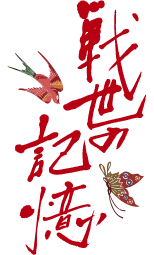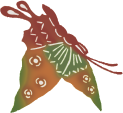
The War on Iejima Island
“The War on Iejima Island”
Takao Toyozato (38豊里隆夫)
Date of birth: October 3, 1926
At the time: 19-year-old Okinawa Normal School student/soldier
There should have been about 12 to 13 first-year soldiers in a single company. A battalion consists of three companies, so there must have been 30 to 40 first-year soldiers in the entire battalion. Three students from our Normal School (teacher training school) were assigned, but in the end, I was the only one who survived the war, and that has made me feel ashamed somehow. We were prepared to die, so I felt ashamed of coming out alive. Since Iejima is a small island, there was no way we could escape.
We mainly engaged in training for attacking tanks and digging foxholes. There was a team leader and an assistant instructor for the training sessions. For training, we built mock M4 tanks out of plywood, with two people holding them up and playing the role of M4 tanks. The training consisted of soldiers hiding in the foxholes saying, “M4 closing in at 50 meters, approaching 30 meters.” As the mock tanks came within 7 meters or 8 meters, the soldiers would yell, jump out of their foxholes and start attacking the tanks. Our weapons were makeshift 7-kg to 10-kg bombs. We handled 7-kg makeshift bombs. These makeshift bombs were wooden boxes that were about 30 centimeters high with four sides covered by wooden plates about 1 centimeter thick. We packed the boxes with yellow powder from dynamites. In those days, fuses were scarce, so we placed grenades on top of the yellow powder, substituting them for fuses. We had the striker from the grenade sticking out from the yellow powder, placed a cover on the top of the box, and held it in place with nails. We would carry the box-shaped makeshift bombs on our back like a rucksack with a rope having a diameter of about 1.5 centimeters.
Since there were no mountains on Iejima, there was nothing to serve as a shield. The first-year soldiers were immediately assigned to various squads.
Since the US ship-based planes kept bombing us one after another during the daytime, all we could do was hide. In the evening, the US ship-based planes would return to their ships, so we would then receive instructions to attack. In response to our attacks, the US forces would begin naval bombardments a little while later. That made us more fearful. Howitzers were also quite terrifying. Howitzer shells would fly over us, making spattering and whirling sounds. We had no way of knowing where they would land. A situation like this lasted for one week until April 16. The US forces landed on Iejima during the daytime on the 16th. The terrain on the north side of Iejima is a cliff that goes straight down, so armored cavalry such as tanks could not land from there. We had expected the US forces to land from the south side of Iejima. Therefore, we laid mines and set up strong points, so-called trenches.
Since our weapons were considered to have been bestowed upon us by His Majesty (the Emperor of Japan), all the troops would go searching if we dropped even a single cartridge during an exercise. In contrast, the US forces had carbines that were fully filled with bullets. The American soldiers were firing their carbines rapidly with one hand. It would be no contest if we engaged in firefight with them. As we lay low and kept ourselves hidden, Sergeant Taniguchi said to everyone: “Keep one grenade for killing yourself, and throw the other grenades while laying low and keeping your heads down.” If we stuck our heads out, we would become targets of American fire. We just shot randomly. We kept one grenade hidden in our pockets. Even after that, all we heard were the sounds of shots fired by the US forces. The Tamura Company, a friendly force, had rapid-fire guns. They were supposed to provide covering fire for us by firing at the US forces, but they shot us from behind instead. They stopped firing immediately, but if they had continued shooting their rapid-fire guns, we would probably have been injured by that shooting.
I think Sergeant Taniguchi had given up. He called out to me, “Hey, Toyozato.” When I replied, “Yes,” he told me: “Put your makeshift bomb in the center.” Therefore, I placed the makeshift bomb. There were only two PFCs who were already wounded and Sergeant Taniguchi around me. Since the Sergeant was the commander, he did not have a makeshift bomb; he just wore a sabre by his side. Sergeant Taniguchi said: “Pull the pin from the grenade.” I could not defy his order, so I pulled the pin. Thinking that this was it, I gave up and closed my eyes. If I kept my eyes open, it would be scary, so I closed my eyes. The, the two PFCs, as if they had already planned it, shouted very loudly: “Sergeant, sir. It’s still too early to die.” They both shouted at the same time. Prompted by the sudden cry of the two soldiers, Sergeant Taniguchi said: “Oh, I see, I see.” Saying so, he retracted his order to pull the pin from the grenade. I felt relieved. It was a feeling of being spared. I could now say, “Oh, I’ve been saved,” but at that time and at that place, I could never have dared to say, “Oh, I’ve been saved.”
Takao Toyozato (38豊里隆夫)
Date of birth: October 3, 1926
At the time: 19-year-old Okinawa Normal School student/soldier
There should have been about 12 to 13 first-year soldiers in a single company. A battalion consists of three companies, so there must have been 30 to 40 first-year soldiers in the entire battalion. Three students from our Normal School (teacher training school) were assigned, but in the end, I was the only one who survived the war, and that has made me feel ashamed somehow. We were prepared to die, so I felt ashamed of coming out alive. Since Iejima is a small island, there was no way we could escape.
We mainly engaged in training for attacking tanks and digging foxholes. There was a team leader and an assistant instructor for the training sessions. For training, we built mock M4 tanks out of plywood, with two people holding them up and playing the role of M4 tanks. The training consisted of soldiers hiding in the foxholes saying, “M4 closing in at 50 meters, approaching 30 meters.” As the mock tanks came within 7 meters or 8 meters, the soldiers would yell, jump out of their foxholes and start attacking the tanks. Our weapons were makeshift 7-kg to 10-kg bombs. We handled 7-kg makeshift bombs. These makeshift bombs were wooden boxes that were about 30 centimeters high with four sides covered by wooden plates about 1 centimeter thick. We packed the boxes with yellow powder from dynamites. In those days, fuses were scarce, so we placed grenades on top of the yellow powder, substituting them for fuses. We had the striker from the grenade sticking out from the yellow powder, placed a cover on the top of the box, and held it in place with nails. We would carry the box-shaped makeshift bombs on our back like a rucksack with a rope having a diameter of about 1.5 centimeters.
Since there were no mountains on Iejima, there was nothing to serve as a shield. The first-year soldiers were immediately assigned to various squads.
Since the US ship-based planes kept bombing us one after another during the daytime, all we could do was hide. In the evening, the US ship-based planes would return to their ships, so we would then receive instructions to attack. In response to our attacks, the US forces would begin naval bombardments a little while later. That made us more fearful. Howitzers were also quite terrifying. Howitzer shells would fly over us, making spattering and whirling sounds. We had no way of knowing where they would land. A situation like this lasted for one week until April 16. The US forces landed on Iejima during the daytime on the 16th. The terrain on the north side of Iejima is a cliff that goes straight down, so armored cavalry such as tanks could not land from there. We had expected the US forces to land from the south side of Iejima. Therefore, we laid mines and set up strong points, so-called trenches.
Since our weapons were considered to have been bestowed upon us by His Majesty (the Emperor of Japan), all the troops would go searching if we dropped even a single cartridge during an exercise. In contrast, the US forces had carbines that were fully filled with bullets. The American soldiers were firing their carbines rapidly with one hand. It would be no contest if we engaged in firefight with them. As we lay low and kept ourselves hidden, Sergeant Taniguchi said to everyone: “Keep one grenade for killing yourself, and throw the other grenades while laying low and keeping your heads down.” If we stuck our heads out, we would become targets of American fire. We just shot randomly. We kept one grenade hidden in our pockets. Even after that, all we heard were the sounds of shots fired by the US forces. The Tamura Company, a friendly force, had rapid-fire guns. They were supposed to provide covering fire for us by firing at the US forces, but they shot us from behind instead. They stopped firing immediately, but if they had continued shooting their rapid-fire guns, we would probably have been injured by that shooting.
I think Sergeant Taniguchi had given up. He called out to me, “Hey, Toyozato.” When I replied, “Yes,” he told me: “Put your makeshift bomb in the center.” Therefore, I placed the makeshift bomb. There were only two PFCs who were already wounded and Sergeant Taniguchi around me. Since the Sergeant was the commander, he did not have a makeshift bomb; he just wore a sabre by his side. Sergeant Taniguchi said: “Pull the pin from the grenade.” I could not defy his order, so I pulled the pin. Thinking that this was it, I gave up and closed my eyes. If I kept my eyes open, it would be scary, so I closed my eyes. The, the two PFCs, as if they had already planned it, shouted very loudly: “Sergeant, sir. It’s still too early to die.” They both shouted at the same time. Prompted by the sudden cry of the two soldiers, Sergeant Taniguchi said: “Oh, I see, I see.” Saying so, he retracted his order to pull the pin from the grenade. I felt relieved. It was a feeling of being spared. I could now say, “Oh, I’ve been saved,” but at that time and at that place, I could never have dared to say, “Oh, I’ve been saved.”


